The new Shanghainese
Updated: 2014-12-13 10:09
By Yu Ran(Shanghai Star)
|
||||||||
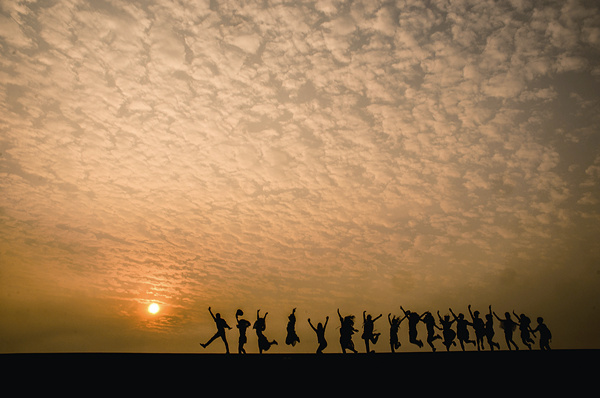 |
|
Shanghai attracts people from all over the world to work and settle down. Photos provied to Shanghai Star |
Every day people from all over the world arrive in Shanghai to live and work, but as Yu Ran reports, finding your place in a city of 24 million people can be tough.
Shanghai is a global financial hub filled with iconic skyscrapers. It is also home to people from all over China and the world.
Every day, hundreds of people arrive in Shanghai looking for jobs and places to live. These are the so-called "new Shanghainese", like Jessie Jiang and her sister from Chongqing.
Jiang and her sister have lived in Shanghai for 13 years. They run a bar in the city's downtown area that welcomes new arrivals to visit and feel the warmth of home.
"We slept in a bunk bed in an eight-square-meter room when we first arrived and we moved around the city with that bunk bed many times before we had our own families in this exciting city," says Jiang, who opened C's bar with her sister 10 years ago.
Jiang says C's bar is her family space in Shanghai. It is where she met her husband, made good friends and it is the scene of many precious memories for her.
"We try to create a home-like bar to welcome people from outside Shanghai to blend into local life like we have, thanks to the help and encouragement from many lovely friends," Jiang says.
Since reform and opening up, the population of Shanghai has exploded, with millions of people moving to the city from other parts of the country. By the end of 2013, the domestic population was more than 14.32 million, 2.8 times bigger than in 1949. The city has a residential population of more than 24.15 million, 9.9 million of which are new arrivals, according to figures released by the Shanghai Municipal Bureau of Statistics.
"The new Shanghaiese tend to be better educated and have greater work experience and practical skills to achieve success in their careers. The growth of newcomers means the city is a multicultural spot," says Zhou Haiwang, deputy director of the Institute of Urban and Population Development Studies at the Shanghai Academy of Social Sciences.
- SCO steadily sails toward building community of common destiny
- Li Keqiang meets Kazakh counterpart in Astana
- Chinese premier arrives in Kazakhstan for visit, SCO meeting
- Japan's LDP-Komeito expected to win over 300 seats in election
- Lima sets groundwork for Paris talks
- UN climate change summit faces deadlock

 Chinese premier arrives in Kazakhstan for visit, SCO meeting
Chinese premier arrives in Kazakhstan for visit, SCO meeting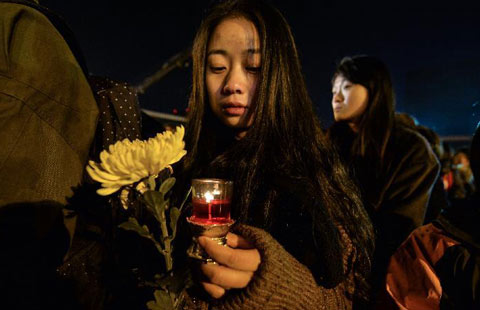
 People hold candles to mourn victims of Nanjing Massacre
People hold candles to mourn victims of Nanjing Massacre
 Fire engulfs ethnic village in SW China
Fire engulfs ethnic village in SW China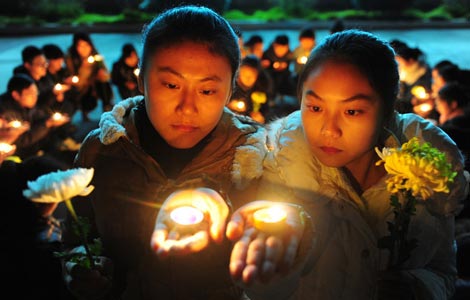
 China to mark first National Memorial Day
China to mark first National Memorial Day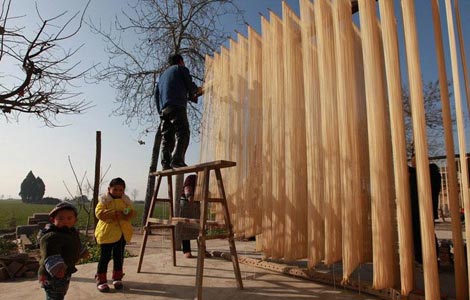
 Village of hand-made noodles
Village of hand-made noodles
 Migratory birds fly over Shengjin Lake
Migratory birds fly over Shengjin Lake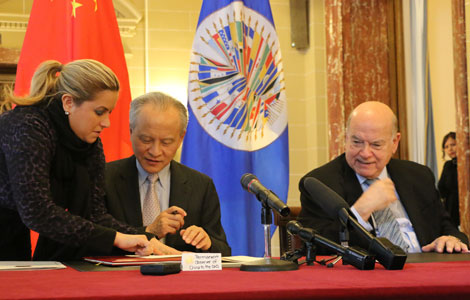
 China and OAS cooperation
China and OAS cooperation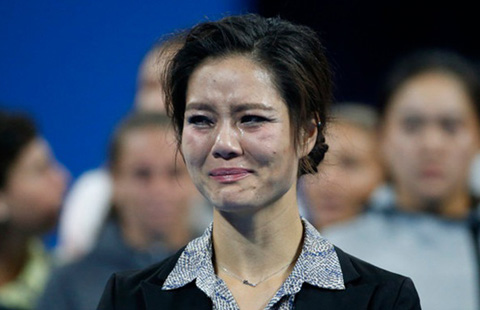
 China expressions 2014
China expressions 2014
Most Viewed
Editor's Picks

|

|

|

|

|

|
Today's Top News
China, Kazakhstan to sign $10b deals during Li's visit
Lima sets groundwork for Paris talks
HK police to clear last occupy site Monday
Nanjing memorial gains global media attention
UN climate change summit faces deadlock
Xi attends China's first memorial ceremony
Three pilot trade zones proposed
US big-data company expands into China
US Weekly

|

|








